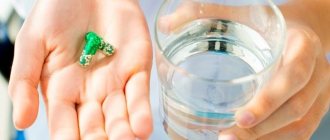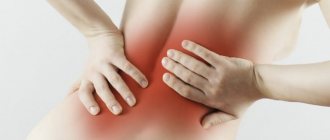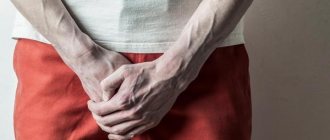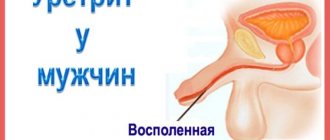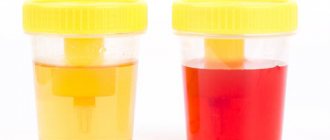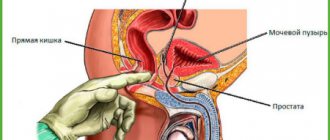The anus (also called the rectum) is the area through which feces are eliminated from the body.
It is important to keep it clean and dry to avoid infections.
It is not unusual to develop infections and pain in the anus, since fecal matter contains millions of bacteria and other toxins.
The causes of burning in the anus can be very different, from moderate to very serious. You should not worry about a burning sensation in this area if you experience it occasionally, after eating spicy food.
However, if you experience rectal bleeding or persistent burning pain, this may indicate hemorrhoids or other problems that require diagnosis.
This article will discuss various reasons why a burning sensation in the anus may occur.
Why does itching appear in the anus?
Itching in the anus can be primary or secondary. In the first version, it can be true, cryptogenic, idiopathic and neurogenic, in the second it serves as a sign of an acute or chronic pathological condition (hemorrhoids, parasite infection, anal fissure, diarrhea or constipation, inflammation of the genital organs, etc.).
Usually an unpleasant symptom occurs suddenly. In addition to itching, a person experiences:
- irritability and weakness;
- loss of appetite;
- problems with bowel movements.
Twitching increases after eating salty, fatty foods, as well as dishes with spices. Sometimes there is peeling of the skin around the anus or, conversely, weeping wounds appear.
Ignoring the symptom leads to depression, chronic fatigue and complications of hidden diseases. To avoid complications, you need to contact a proctologist as soon as possible. The doctor will examine you, refer you for tests, make a diagnosis and select therapy.
If anal itching is not accompanied by other symptoms, then most likely it is caused by nervous tension. If, in addition to the itching, you have suddenly lost weight, noticed ulcers on the skin, experience pain, fever and general malaise, then the reason may be more serious.
Prevention of anal diseases that cause burning and itching
The main rule for preventing irritation of the anus with diarrhea is to carry out regular hygiene procedures, replacing toilet paper with soft napkins. To prevent diarrhea, the following should be observed:
- wash your hands before eating and after going outside or visiting the toilet;
- subject meat and fish products to thorough heat treatment;
- wash vegetables and fruits well, preferably in soapy water;
- drink only boiled water;
- eat only fresh food;
- monitor the expiration dates of products;
- It is advisable to avoid nervous tension.
Intestinal diseases
Intestinal pathologies are the most common cause of anal scabies. Diseases of the lower gastrointestinal tract include:
- hemorrhoids external/internal;
- genital condylomas;
- cracks and mechanical damage;
- oncological tumors.
With pathologies of the rectum, the symptoms will be constant and increasing. In addition to itching, sharp stabbing pains that intensify in a sitting position and when going to the toilet can be bothersome.
Gynecological and urological diseases
Women may experience anal itching due to intimate herpes, vaginitis and disruption of vaginal secretion. In men, the causes of itching can be: prostatitis, furunculosis, urethritis. In addition, discomfort in the anal area is provoked by various sexually transmitted infections:
- chlamydia, trichomoniasis;
- primary syphilis;
- gonorrhea, mycoplasmosis.
What is anal itching - main signs and symptoms
It is very simple to distinguish pathological itching in the anal area from short-term irritation of the perianal area. Pathological is considered a symptom that occurs, if not constantly, then regularly. The majority of patients who sought medical help complaining of daily discomfort associated with certain situations:
- eating;
- eating certain foods;
- going to the toilet;
- body position;
- human activity.
Anal itching can occur for no apparent reason. However, it causes significant inconvenience and reduces the patient’s quality of life. An attack of severe itching can last from several minutes to several hours.
Pathological itching does not go away on its own, becomes longer and more intense, and in most cases is complicated by inflammation of the skin around the anus. In this case, itching and burning, tingling and swelling of the anal folds become a constant companion for the patient.
Additional symptoms that accompany itching in the anus indicate pathological processes:
- discharge of mucus from the anus;
- anal bleeding (traces of blood visible on stool and/or paper);
- sensation of a foreign object in the anus;
- intestinal disorders (diarrhea, flatulence, constipation);
- rashes in the perineum;
- acute pain during bowel movements;
- discharge from the genital tract.
All of these conditions require proper treatment. However, before you start, you need to find out what exactly caused the itching.
Without knowing the reasons why the anus itches and burns, it is impossible to select effective treatment methods. If you pay attention only to eliminating this symptom, the disease will progress.
Dermatological pathologies
Swelling in the anal area is often accompanied by psoriasis. Skin defects with this disease appear on various parts of the body, including near the anus. Itching may be a sign of an allergic reaction to cosmetics, pads, or underwear. In this case, it is accompanied by irritation, redness and inflammation of the skin.
In order not to suffer from guesswork, suffering from itching in the anus, contact the ACMD clinic. Professionals with extensive experience work here who will get rid of the problem quickly and painlessly!
Causes of diarrhea, accompanied by itching, burning and pain in the anus
Irritation of the anus, when the ass burns and hurts after loose stools, may indicate various pathological conditions. Diarrhea itself causes a lot of trouble, and if it is also accompanied by unpleasant sensations such as itching, burning, the anus hurts and does not give rest, the discomfort increases significantly. These problems are quite common, and the way to eliminate them largely depends on the reasons that contribute to their occurrence, of which there are quite a few.
Bacteria and viruses
Diarrhea is often associated with disruption of the intestinal microflora and inflammatory processes due to the activity of bacteria and viruses. In this case, the frequent urge to defecate is accompanied by irritation of the anus, redness of the skin on the butt, which can cause a rash, burning, and itching of the anus. The appearance of these symptoms is facilitated by microorganisms contained in loose stools that provoke intestinal disorders, for example, staphylococcus.
Violation of hygiene standards
Violations of hygiene standards include rare water treatments and infrequent changes of linen. Unhygienic conditions lead to the spread of infection in the anal area, redness of the butt, itching, and burning, which are aggravated by liquid stool.
Digestive tract diseases
Intestinal diseases are the most common cause of diarrhea with pain, itching, burning in the anal area. These may be viral infectious diseases, tumor formations, the presence of polyps, warts, condylomas, fistulas, cracks in the anus and rectum. Irritation of the anus can be a companion to a disease such as hemorrhoids, and traces of blood can be found in loose stools. The development of hemorrhoids can be triggered by a sedentary lifestyle or injury to the perineal area.
Intestinal damage by parasites and worms
Parasitic intestinal diseases are perhaps one of the main causes of diarrhea, accompanied by burning, itching, and the butt becomes irritated and red. Parasites settle in the rectum, their presence is sometimes not manifested by anything other than itching in the anus, redness of the butt and loose stools. More often, children become infected with worms because they tend to put objects picked up from the floor or ground into their mouths, lick their hands, and kiss pets. In this case, the diarrhea will have characteristic mucus and will have a greenish tint. In addition, with loose stools caused by worms, the stomach often hurts and growls, and the itching of the anus sometimes becomes unbearable, which forces a person to scratch it, causing even greater irritation. In addition to worms, the intestines are often affected by intestinal Giardia - simple microorganisms that disrupt the functioning of the digestive system, and in particular the absorption function, causing irritation of the intestinal walls, intoxication of the body, and, as a result, burning diarrhea. The characteristic burning sensation intensifies when the female parasite comes out, where she lays eggs.
Spicy food
Diarrhea with burning can also be caused by spicy food, which speeds up the digestion process, forcing the intestines to contract faster and move through the digestive tract, causing loose stools, irritation of the mucous membranes and skin.
Sexually transmitted infections
Sexually transmitted diseases are characterized by genital discharge. These diseases are caused by fungi, which, when multiplying, also lead to irritation of the skin in the anal area, so a burning sensation is felt when defecating. The fungus most often found in women is candidiasis, which causes a disease such as thrush, accompanied by white discharge. For men, this disease is transmitted during sexual intercourse.
Mechanical damage to the skin in the anal area
Mechanical damage can be caused by both rough toilet paper and uncomfortable tight underwear, which creates friction near the anus. As a result of their use, irritation and a burning sensation with diarrhea, accompanied by itching, appear. Severe itching leads to the formation of rashes and severe pain. The use of a razor to remove hair can damage the skin in the anus; after its use, microscopic cracks are formed, which are irritated by loose stools and cause itching, so after defecation, the irritated area of the anus may hurt.
Diabetes
Diabetes is the cause of diarrhea caused by metabolic disorders. In turn, loose stools cause a burning sensation, which is explained by dry skin, including in the anus, which is characteristic of this disease.
Excess weight
Excess weight, that is, obesity, negatively affects the functioning of the digestive tract, many functions are disrupted, and loose stools often appear, causing itching and burning in the anal area as a result of frequent bowel movements, which are aggravated by increased sweating due to weight gain.
Diseases of the liver, gallbladder, pancreas
Diseases of the pancreas, liver, and gall bladder are accompanied by stool disorders, that is, diarrhea. If the functioning of these organs is disrupted, diarrhea becomes permanent, which also irritates the skin and mucous membrane of the anus.
Nervous tension
Nervous tension, stress and depression can increase sensitivity and dry skin. Under the influence of nervous shock, intestinal motility increases, as a result of which the rate of digestion and elimination of food increases, and stress diarrhea occurs. Frequent bowel movements further irritate sensitive skin, causing discomfort.
Allergic reactions
Often the cause of diarrhea is an allergy to food or medications. Allergic reactions are accompanied by increased skin sensitivity, rashes and itching; under the influence of cosmetic hygiene products, this condition can be aggravated.
